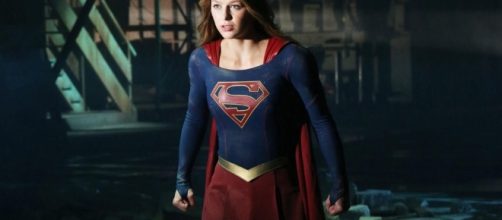Currently, Marvel Studios have fifteen new projects on the horizon, and one of them is about a female superhero. The DC Extended Universe has ten new films on the way, and one of them is about a female superhero. All the rest are about men. And what certainly won't help that is Supergirl's moderately unsuccessful run on CBS.
But the show’s declining ratings are down to one simple fact: it isn’t particularly good. And in these days of Game of Thrones and Better Call Saul, audiences have high standards and won’t settle for a subpar show. And the only reason why it's not good (and it has nothing to do with Melissa Benoist or her female gender), the show lacks conflict, the grounding of all storytelling.
Conflict is how you keep a story interesting. Supergirl is just week after week of Kara telling Alex what an amazing person she is and telling Winn what an amazing person he is and telling James what an amazing person he is, and Alex, Winn and James telling Kara what an amazing person she is. Every time they set up an interesting villain or danger, Kara thwarts it immediately. Even the seemingly apocalyptic threat in the penultimate episode was wrapped up easy peasy in the first act of the season finale, with characters spending the rest of the episode telling each other how amazing they are. Where’s the yelling? Why don’t these people hate each other sometimes? Why does every character always make it out alive?
Supergirl's writing stinks
The show is poorly written, as well as riddled with clichés, and that makes Supergirl boring. It wants to be, but it’s nowhere near as risky and original as something truly dark and interesting like Marvel’s Jessica Jones, which is a much better case for the fertile storytelling ground provided by female Superheroes. Don’t get me wrong, Supergirl's still a greatcharacter, even if her name does suggest inferiority over her straight white male cousin. She’s actually older and more powerful than Superman, so if anything, he should be called Superboy and she should be called Superwoman, but you’ll have to give them the benefit of the doubt on that one as the character was created in the super-patriarchal fifties.
If she was featured in a better-written show that actually adhered to the basic rules of creating drama, it would be a huge hit, like Jessica Jones, which as I mentioned, is fantastic.
The lesson to learn from Supergirl
The lesson Hollywood should learn from the failure of Supergirl – while it’s not a massive failure, it was ditched by its own network, so it was quite a failure – is that they should hire better writers, not that they should stick to male superheroes. Jessica Jones was spectacularly written, so it goes to show how much better Supergirl would be with better writing. It’s nothing to do with gender, Hollywood, so please recognise that.
And we need more female-led superhero fiction because girls need characters to look up to too.
That’s the grounding of all superhero fiction. They’re like modern-day Greek gods, but relatable to common folk. Boys can look up to Thor and Captain America and Superman. They have dozens of different male characters. They can look up to Batman if they’re an orphan or the Hulk if they have anger problems or Spider-Man if they’re a quiet, awkward nerd desperate to be noticed (so basically any teenage boy who reads comics). But girls have a much harder time relating to superheroes. Girls can only look up to Supergirl because they’re a girl or Wonder Woman because they’re a girl or Black Widow because they’re a girl. We need a lot more variety in these female characters because girls aren’t just faceless beings in a male-dominated world as these films are presenting them, they’re all individual people with their own identities, and that needs to come across in what is supposed to be a relatable genre, otherwise young girls will continue to look up to Kim Kardashian as a role model, and the only way any of this will happen is if each studio makes more than one.

